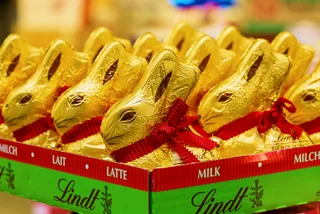Is Christmas over yet? For millions of Orthodox believers, which represent as many as 12 percent of the world’s Christians, it’s actually coming up next week, on Jan. 7, for reasons which have to do with the evolution of religious dogma over the past two millennia.
While data from the 2021 census showed that 40,681 people declared their affiliation with the Orthodox Church of the Czech Lands and Slovakia, the current number of Orthodox believers in Czechia is likely much higher due to the arrival of Ukrainian refugees since the Russian invasion in February 2022, many of whom are Orthodox.
A matter of faith — and calendars
As National Geographic notes, the issue goes back to an ecumenical conference in 325 A.D., when a group of Christian bishops decided to base religious celebrations on the Julian calendar. Named after Roman Julius Caesar, who adopted the calendar on 46 B.C., it overestimated the length of the solar year by around 11 minutes.
This meant that Christian holidays were increasingly getting out of sync with the solar calendar. As a result, Pope Gregory XIII proposed another, more accurate calendar in 1582, which was named the Gregorian calendar. This is the calendar that most countries use to this day, including for Christmas celebrations on Dec. 25.
While the calendar issues were piling up, the Great Schism of 1054 resulted in a split of Christianity into Catholicism and Orthodoxy, due to a number of issues related but not limited to religious dogma. Since the Pope only had a say over the Catholic flock, the Orthodox world did not adopt the Gregorian calendar in 1582.
The latter’s reckoning time with the calendar issue came in 1923 at the Pan-Orthodox Congress. Following the congress, several Orthodox churches, including those of Greece, Cyprus, Bulgaria and Romania, adopted the so-called revised Julian calendar. As a result, these countries observe Christmas on Dec. 25, while also celebrating Easter, a more important holiday in Orthodoxy than Christmas, according to the Julian calendar.
Who celebrates Christmas in January?
In a nutshell, the Orthodox countries are still sticking to the Julian calendar, which is currently 13 days behind the Gregorian calendar, meaning that Christmas Day falls on Jan. 7.
In fact, these people represent the majority of Orthodox believers, who belong to the Russian Orthodox Church, Egyptian Coptic Church, Ukrainian churches, the Serbian Orthodox Church, the Macedonian Orthodox Church.
It is worth noting that the Armenian Orthodox Church observes Christmas Day on Jan. 6th, which was the original date for Christmas before the 4th century.
How is Orthodox Christmas celebrated?
While the answer varies from country to country, there are certain similarities. One of them is the fasting period before Christmas, which starts on Nov. 15 and lasts until Dec. 24. During that time, believers (except for children and the elderly) are prohibited from eating any animal products, other than fish on specific dates, while weddings or any kind of parties are prohibited.
The Christmas tree is a more recent addition to Orthodox celebrations, and is usually decorated on Dec. 24. Unlike Catholics, Orthodox don’t include Advent wreaths with candles in their celebrations. Christmas presents are also a modern-day tradition.
It is noteworthy that Christmas celebrations were completely banned in communist countries, where it was business as usual on Dec. 24, 25, or 7, unless those dates fell on a Sunday, which was the only day off before the fall of communism.
Communist authorities did give people a day off on Jan. 1, in a bid to make New Year’s Eve more popular than Christmas. They also replaced Father Christmas with Father Frost, a character imported from Russian folklore via the Soviet Union. New Year’s Eve was also the time to exchange gifts. The tradition stuck in Russia, where people still exchange presents on New Year's Eve.
No Christmas is complete without…
Once again, the Orthodox Christmas menu varies according to each country’s local cuisine. In my native Romania, it is based around pork meat, and includes a dish called sarmale (pickled cabbage rolls filled with ground meat, rice, and various spices), eaten with sour cream and polenta on the side. The traditional Christmas cake is called cozonac, and is similar to the Italian panettone.
In other countries such as Ukraine, according to Euronews, the Christmas Eve dinner consists of 12 dishes, a number reminiscent of the 12 apostles. These include borscht, fried fish (which probably sounds familiar to Czech residents), dumplings, dried fruit compote, and garlic eaten with salt.












 Reading time: 3 minutes
Reading time: 3 minutes 
























